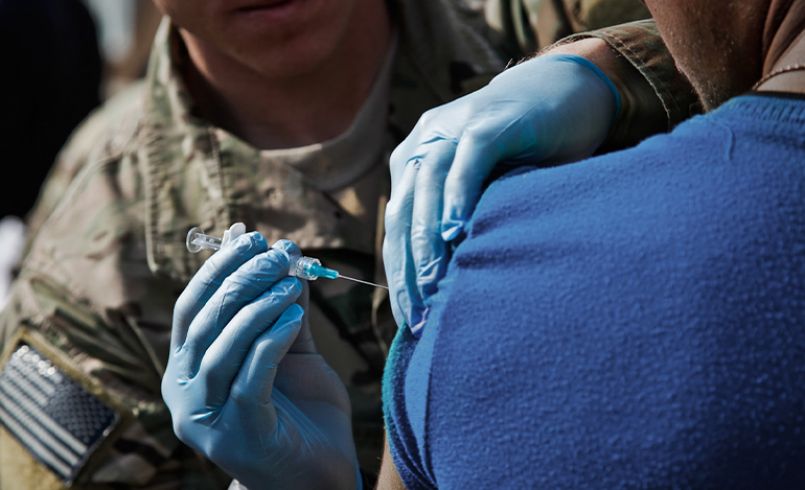- Daniel K. Inouye Asia-Pacific Center for Securi...
- Planning for Military Involvement in an Indo-Pa...
Planning for Military Involvement in an Indo-Pacific Pandemic Vaccination Program
The new paper written by Sebastian Kevany, University of California, San Francisco; Deon Canyon, Daniel K. Inouye Asia-Pacific Center for Security Studies, Hawaii; Robert Ostergard, U.S. Navy (Retired); Michael Baker, U.S. Navy (Retired); Sheena Eagan, East Carolina University and Jacob Baker, Georgetown University, for Security Nexus. This article addresses the pros, cons, and planning of military involvement in an Indo-Pacific Pandemic Vaccination Program.
Summary
The Indo-Pacific contains most of the world’s population and many frail health systems that may falter when it comes to implementing a vast global vaccination campaign against COVID-19. For decades, military medicine has pioneered vaccination programs and is aware of the complex ethical considerations involved. Military involvement in vaccination programs could do immeasurable harm to soft power efforts and international relations if mishandled. It is likely that the Oslo humanitarian doctrine, stipulating that foreign military assistance should only be used as a last resort, will characterize the way forward. The best option is for joint or combined missions, based on shared responsibility between all stakeholders, to conduct the preponderance of hands-on medical work, when and where most needed. Above all, militaries must ensure that they commit to upholding the ideals of a rules-based domestic and international order that ensures peace and prosperity for all.
VIEW FULL ARTICLE
The views expressed in this article are the author’s alone, and do not necessarily reflect the official position of the DKI APCSS or the United States Government.
Security Nexus is a peer-reviewed, online journal published by the Daniel K. Inouye Asia-Pacific Center for Security Studies.



